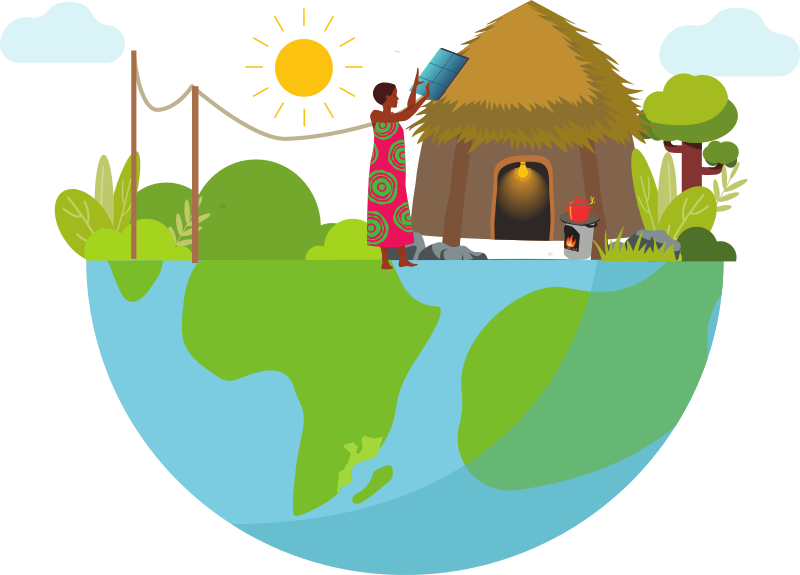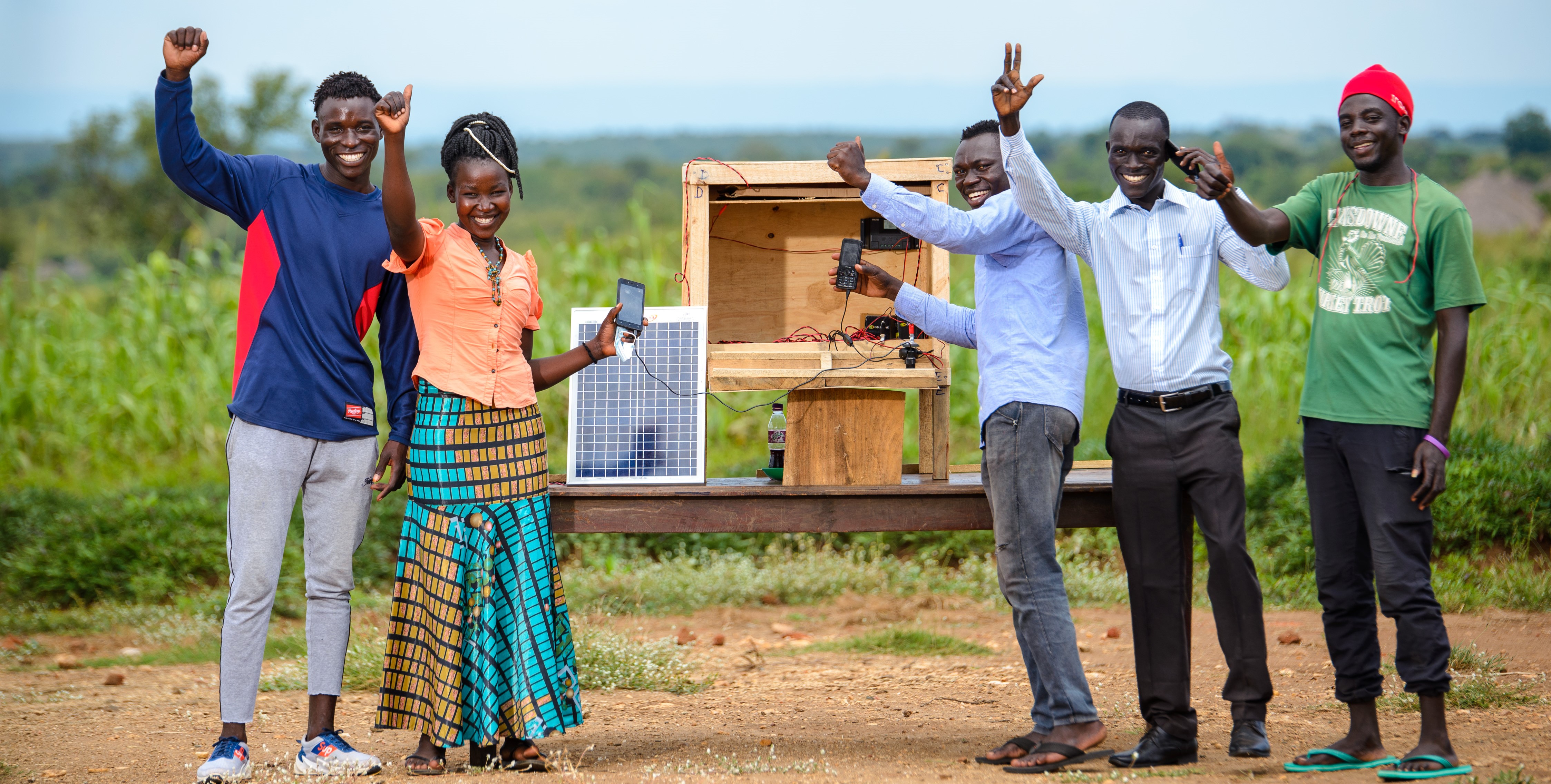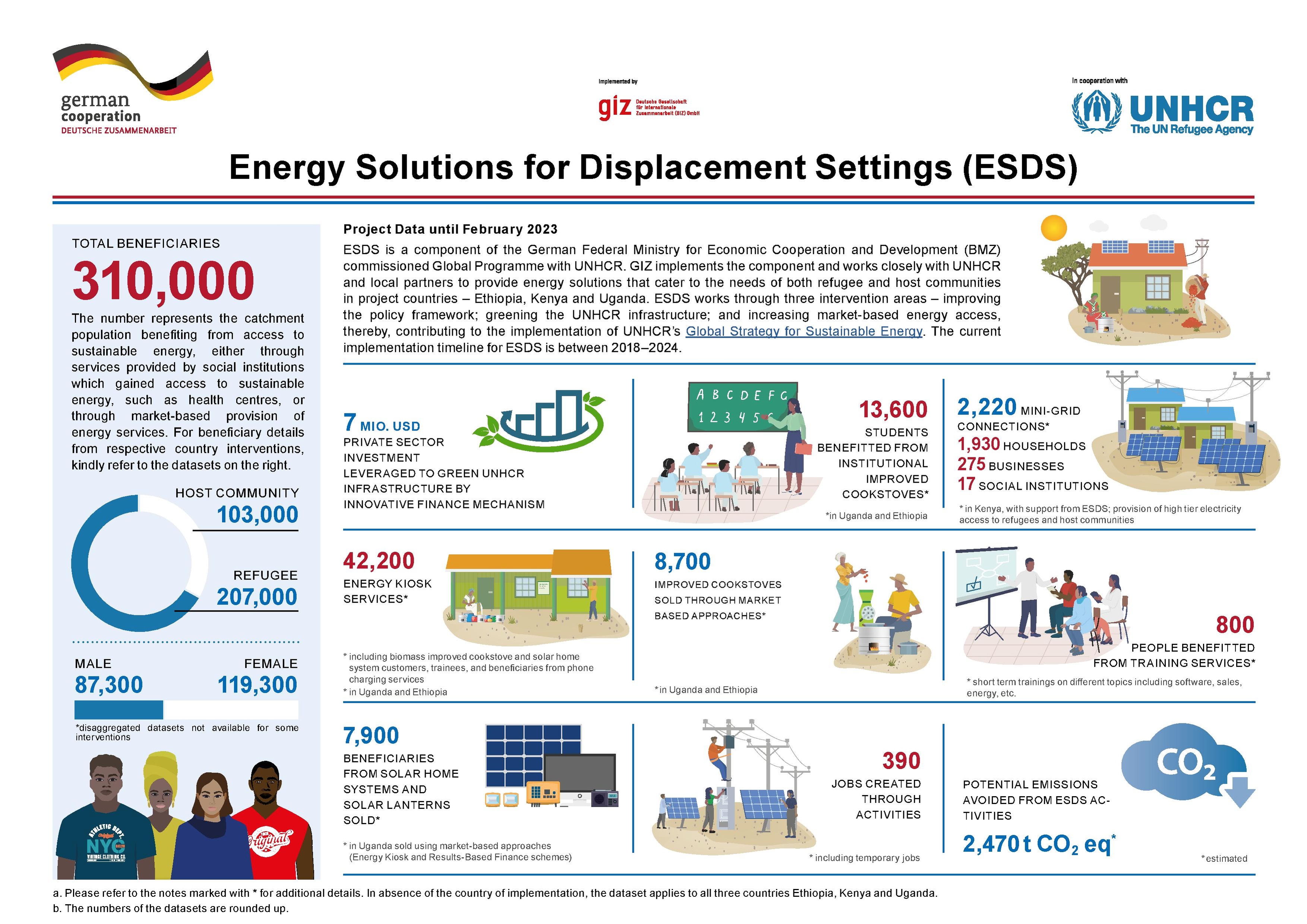Knowledge fuels change - Support energypedia!
For over 10 years, energypedia has been connecting energy experts around the world — helping them share knowledge, learn from each other, and accelerate the global energy transition.
Today, we ask for your support to keep this platform free and accessible to all.
Even a small contribution makes a big difference! If just 10–20% of our 60,000+ monthly visitors donated the equivalent of a cup of coffee — €5 — Energypedia would be fully funded for a whole year.
Is the knowledge you’ve gained through Energypedia this year worth €5 or more?
Your donation keeps the platform running, helps us create new knowledge products, and contributes directly to achieving SDG 7.
Thank you for your support, your donation, big or small, truly matters!
Sandbox
ESDS Project
Improving the policy framework
We work together with policy makers to create the necessary framework conditions to implement the GCR and ensure sustainable energy access for refugees and host communities at a national, regional and district level.
Greening the UNHCR infrastructure
We advise UNHCR to solarize its infrastructure via market-based approaches and implement energy efficiency measures to reduce its diesel
The project teams of ESDS work towards these objectives in selected regions in the three partner countries Ethiopia, Kenya and Uganda in collaboration with UNHCR and local and national authorities. ESDS has teams in each country which implement activities on the ground and are supported by the Global-team based in Germany that coordinates all measures and aligns them to each other. As the Clean Energy Challenge Baseline Data Visualization shows, the given conditions regarding access to sustainable energy for refugees and host communities differ in the three project-countries, translating itself into context-specific activities whose scope vary for the countries. The three intervention areas constitute however the overall and common framework.
Regional Focus

Ethiopia
Project Area: Gambella Region
- Support UNHCR in implementing its cooking fuel strategy and improve framework conditions for energy access to refugees and host communities
- Advise UNHCR in reducing diesel-consumption and solarizing camp infrastructure via market-based models
- Promote sustainable energy products among households through advertisement campaigns, energy kiosks and financing schemes, and assist in incentivizing companies to operate in camps

Kenya
Project Area: Turkana County
- Strengthen capacities of Turkana County government to implement renewable energy solutions for refugees and host communities
- Solarize and upscale existing mini-grids for sustainable high-tier electricity access for households, institutions and UNHCR

Uganda
Project Area: West Nile Region
- Assist in implementing the national Sustainable Energy Response Plan and strengthen capacities of local administrations
- Advise UNHCR in reducing diesel-consumption and solarizing camp infrastructure via market-based models
- Promote market-based access to sustainable energy through advertisement campaigns, energy kiosks and flexible payment schemes, and assist in incentivizing companies to operate in camps
 Global
Global
In cooperation with the country-offices
- Offer advisory services for stakeholders
- Perform concept development, project management and knowledge generation
- Coordinate technical assessments, market studies and pilot projects
Background Information ESDS
The BMZ commisioned Global Programme "Support to UNHCR in the implementation of the Global Compact on Refugees in the Humanitarian-Development-Peace Nexus”(SUN), implemented by GIZ, seeks to support UNHCR in its role as facilitator of the implementation of the Global Compact on Refugees (GCR) and the Comprehensive Refugee Response Framework (CRRF) in selected refugee contexts and sectors. The Global Programme is part of the German special initiative "Tackling the Root Causes of Displacement, (Re-)integrating Refugees". The Global Programme also aims to operationalise the Humanitarian-Development-Peace (HDP) Nexus. The HDP Nexus envisions actors working in humanitarian, development and peace realms to work more cohesively together, capitalizing on their respective comparative advantages following the recommendations of the 2016 World Humanitarian Summit (WHS) and in line with the 2030 Agenda. Under the “New Way of Working” agreed at the WHS, the various actors are expected to work towards “collective outcomes” that reduce risk and vulnerability and serve as instalments towards the achievement of the SDGs. Read more
The Global Programme consists of 4 components that include implementing activities with UNHCR in 8 countries, accompanied by organisational capacity development. The aim is the consolidation, analysis and sharing of lessons learned from implementation experiences in order to better implement the HDP Nexus. This is key in generating knowledge on ‘what works under which conditions’ and contributes to public, organisational and mutual learning between the two partners GIZ and UNHCR. The cooperation can result in better informed and coordinated programming and implementation of the GCR, CRRF and HDP Nexus.
Implementation of the HDP Nexus in selected displacement settings (in Niger, Mexico, Mauritania)
Implementation of the HDP Nexus in the sector of sustainable energy (Energy Solutions for Displacement Settings in Ethiopia, Kenya, Uganda)
Strengthening UNHCR's capacities to foster implementation of the GCR and cooperation within the HDP Nexus (UNHCR headquarters in Geneva, UNHCR national offices)
Strengthening capacities of governmental structures to implement the GCR at national and district levels (in Uganda, Rwanda)
ESDS is the German contribution to the Clean Energy Challenge issued by UNHCR in 2019 with the following objective:
To that end, ESDS offers global advisory services, implements technical measures and cooperates with relevant stakeholders to promote sustainable and affordable energy access via market-based solutions and to create enabling framework conditions.
ESDS Factsheets
ESDS Webinars
- Collaborating for Change: Lessons from the SUN-ESDS Project
- Webinar Experiences on Operation and Maintenance in Displacement Settings
- Ewaste Value Chain in Humanitarian Settings
- Role of Energy Policies in Shaping Energy Access Dialogue in Displacement Contexts
- Access to Energy for Cooking in Displacement Settings
- Energy Efficiency in Humanitarian Organization Infrastructure
- Workshop on Participatory Design Processes for Energy Projects Planning and Implementation
Partners
GIZ's Energy Solutions for Displacement Settings (ESDS) project cooperate with UNHCR to enhance the access to sustainable energy in displacement contexts, and the Energypedia page has been created to share learnings across various practitioners to spur the development of clean energy solutions.























